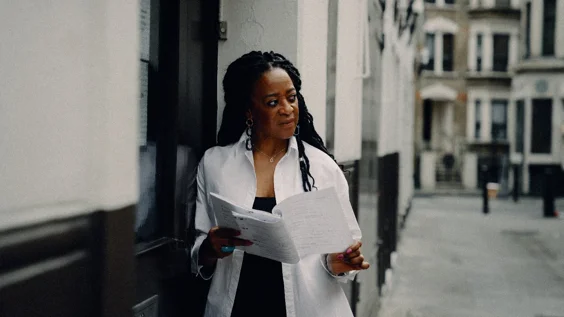On this page
The Equality Act states that you must not be discriminated against on the basis of your sex in a number of circumstances:
- You are, or are not, of a particular sex.
- Someone thinks you are of an opposite sex, and treats you differently and detrimentally as a result. This is known as discrimination by perception.
- You are connected (for example related) to someone of a specific sex and you are subject to detrimental treatment as a result. This is known as discrimination by association.
The poor treatment related to sex can be due to a single, one-off event or action. Or it could be caused by a rule or policy. It does not have to be intentional it to be unlawful.
While the legal protection given is important, the law is complex. So it’s essential to raise any concern with us as early as possible. We can provide guidance on your options to resolve a matter. Contact us.
One of the most frequent forms of sex-based discrimination faced by Equity members is harassment, particularly sexual harassment. We work with producers and engagers across the entertainment industry to end this. You can find examples of our work in this area below.
Circumstances when being treated differently due to sex may be lawful
There are occasions where it is lawful to discriminate on the basis of sex. First, this is where there is a specific occupational requirement where having a protected characteristic is deemed essential to gain access to a service, or be eligible to apply for a job. So, for example, it may be required that only women can be auditioned for a specific role to ensure authentic portrayal.
Second, this is where an organisation implements a specific positive action measure.This could be to attract applicants from a particular sex to apply for a job or role in which that sex is historically underrepresented. For example, an arts organisation may encourage applications from women as they have historically been underrepresented in that role.. The organisation cannot expressly discriminate against men applying for the job, but it can implement a positive action measure to actively reach out to women.
Equity’s work to combat sex discrimination
Equity’s Safe Spaces Campaign
We have a zero tolerance approach to sex-based discrimination. Our Safe Spaces campaign and Agenda for Change strategy are part of our commitment to fighting sexual harassment across the entertainment industry. The campaign pioneered the mainstream use of workplace policy to set standards to create inclusive, safe working environments. We welcome developments to create safe working environments, including intimacy co-ordinators and directors. But first and foremost engagers and producers must commit to measures to guarantee a working environment free of bullying and harassment.
Childcare
Research shows women still take on the bulk of childcare responsibilities. This was highlighted in research by Parents in the Performing Arts (PiPA).
We work closely with PiPA to improve the working lives of parents and cares in the entertainment industry. For example working with PiPA, and a wide range of partner organisations including The Wonder Works and Raising Films, we campaign for nursery and childcare provision across the entertainment industry. This includes support for the Keeping Families in Film campaign that sought to work with production companies to offer affordable, accessible on-set childcare.
Equal Pay
Legislation to address inequalities in pay based on sex has existed in the UK for over 50 years. But there remains a significant, national difference of 15.5% between the average earnings of women and men. This is known as the gender pay gap.
A key reason for the pay gap is that women and men are not paid the same rate of pay where their work is of equal value (or where the work can be evaluated as broadly similar). This is an unlawful form of sex discrimination under the Equality Act.
To make sure trade unions and their members are supported to challenge inequalities in pay, we helped develop the Achieving Equal Pay in your Workplace Toolkit. The Toolkit is part of a campaign by the Equality Trust to address the delay in achieving equal pay, despite legislation being in place for over 50 years.
We can support you if you are concerned that you’re not receiving equal pay compared to someone of another sex and who is doing the same type of work. We are aware that a lack of equal pay based on sex discrimination exists across the entertainment industry. We’ll always work with members to address inequalities in pay. Contact us If you have a concern around equal pay.

